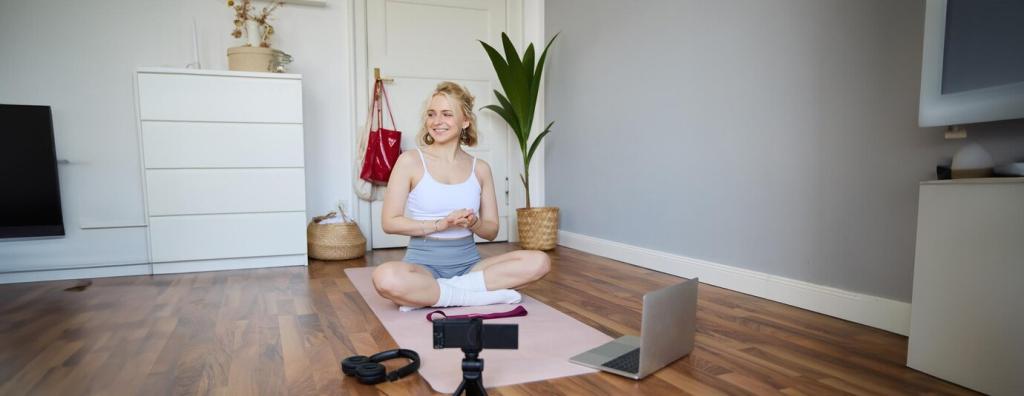Real-Time Kickboxing Fitness Classes: Sweat, Strike, Thrive
Why Real-Time Beats On-Demand
When a coach cues you as you move—drop your hips, rotate your rear shoulder, reset your guard—the adjustment lands in your muscles immediately. Those real-time corrections prevent sloppy habits and turn every round into a lesson you actually feel.



Technique First: Live Foundations That Build Power
In live sessions, coaches notice if your lead foot drifts or your chin peeks above your shoulder. A quick cue—tuck, narrow, pivot—anchors balance so every jab lands crisp and every kick returns home without wobble.
Technique First: Live Foundations That Build Power
Real-time drills teach you how far to slide to evade and still counter. You’ll hear, “Half-step left, reset!” and feel spacing click. Distance control becomes instinct instead of guesswork.

Small Space, Big Power
Clear a rectangle the length of your outstretched arms, mark your fight line with tape, and angle your bag slightly off-center. This simple setup gives you safe rotation room for hooks and roundhouses.

Camera Angles Coaches Love
Place your camera at hip height, three to four steps away, pointing slightly upward. Coaches can read your stance, spine, and hip rotation at a glance and offer precise, real-time adjustments.

Sound That Keeps You in Rhythm
Use headphones or a small speaker so bell timers and coach counts cut through bag noise. You’ll keep cadence during fast flurries and hear safety cues before fatigue blurs form.
Adaptive Training Plans, Guided in Real Time
Coaches scale volume and intensity based on how you move today. They’ll insert micro-intervals, switch stances, or extend active recovery so your technique and engine advance together.
Adaptive Training Plans, Guided in Real Time
Use color-coded cues instead of complicated math. When the coach calls Zone 3, you breathe nose-in, mouth-out and keep speech to short phrases; Zone 4 pushes you to sharp, gritty bursts.


Hearing “Alex in Austin, gloves up!” is a tiny jolt of joy. Attendance shout-outs turn a name on a screen into a training partner who expects you to finish the round, not fade.
Community and Accountability That Keeps You Showing Up
Mindset, Safety, and Confidence in the Live Moment
01
Warm-Up Rituals That Prime Performance
Expect dynamic ankles, hip openers, and shoulder prep before the first bell. Coaches watch for stiffness and adjust tempo so your first combination lands crisp, not clunky.
02
Form Signals to Watch For
When fatigue rolls in, coaches call it: dropping guard, over-rotating knees, or shrugging shoulders. Quick resets keep you powerful while protecting joints and breath.
03
Celebrating Small Wins, Live
Anecdote time: Maya in Denver nailed her first fluid jab-cross-hook after weeks of pausing between strikes. The chat erupted, the coach cheered, and consistency suddenly felt addictive.
